Fritextsökning
Artiklar per år
Innehållstyper
-
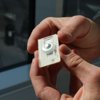
From the sea of Åland to a self-test for lithium
Four years ago, a meeting on the sea of Åland resulted in the development of a self-test for lithium levels in the blood. The hopes are that the test will be available for individuals with bipolar disorder in the future.
-
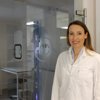
Heidi Stensmyren is eager for new challenges in the biotech industry
Heidi Stensmyren has served as President of the Swedish Medical Association, held a managerial position at Karolinska University Hospital and is now Medical Director at a biotech company. “I’m curious and like to have influence, so I’ve often chosen
-

Första pillret mot förlossningsdepression godkänt i USA
Den första orala behandlingen specifikt inriktad på förlossningsdepression har godkänts av FDA.
-
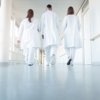
Medivir tar in rådgivare för utveckling av läkemedelskandidat
Det svenska forskningsbolaget Medivir har startat ett vetenskapligt råd i syfte att bistå i arbetet med utvecklingen av företaget läkemedelskandidat.
-
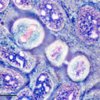
Uppgörelse klar om Henrietta Lacks odödliga celler
Sedan över 70 år lever Henrietta Lacks celler vidare i laboratorier världen över, och har bidragit till medicinsk forskning som räddat otaliga liv. Själv visste hon inte ens om att cellproverna togs och ingen kompensation har getts – förrän nu.
-

Behandling för svår nervsjukdom EU-godkänns för unga
Astra Zenecas läkemedel Soliris har fått klartecken av EU-kommissionen och blir därmed den första godkända, riktade behandlingen för barn och ungdomar med den sällsynta neuromuskulära sjukdomen myastenia gravis.
-

AstraZeneca moves to brewery quarters in central Copenhagen
AstraZeneca in Denmark is moving its business into central Copenhagen and the old brewery quarters in Carlsberg Byen.
-
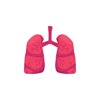
Nanoparticles to help detect pulmonary disease
Nanoparticles behave in a certain way in the air. Using this knowledge, researchers at Lund University have developed a new measurement method for lung examinations based on the phenomenon.
-
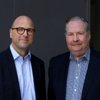
Looking for greater Nordic cooperation – “We have Norway and Finland in our sights”
How can Medicon Valley Alliance bring the big pharmaceutical companies back to the organisation? Life Science Sweden discussed this topic and others with the cluster organisation’s new radar pair.
-

Uncertainty about the government’s life science work
The government’s national coordinator for life science, Jenni Nordborg, left her position almost four months ago. No one has yet succeeded her, and now questions are being raised both about the government’s plans for the office and the Swedish life science strategy.
-

Fem saker du måste veta om AI 2023
Är ditt jobb hotat av maskininlärning? Varför är det viktigt att hänga med i utvecklingen inom artificiell intelligens? Här får du svar på vad du behöver veta om AI just nu.
-

Meeting with focus on South Korea and Japan’s life sciences
Large, complex and exciting – this is how Britta Stenson, Business Sweden, describes the life science markets of Japan and South Korea, which took centre stage during a webcast seminar.
-
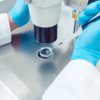
Major advances in IVF labs in the last few decades
Since the introduction of in vitro fertilisation several decades ago, many developments have been made in the field, and the main part of that development has taken place in the lab.
-

Sydkoreas och Japans life science i fokus på möte
Stora, komplexa och spännande. Så beskriver Britta Stenson, Business Sweden, Japans och Sydkoreas marknader för life science, som stod i centrum under ett webbsänt seminarium.
-

Ny studie: Mozarts effekt på epilepsi är en myt
Musik kan skänka glädje, välmående och ro – men den hjälper inte mot epilepsi. Den mystiska "Mozarteffekten" saknar vetenskapligt stöd, enligt en ny studie.
-

Karolinska sjätte bästa sjukhus i världen enligt ny rankning
Den amerikanska tidskriften Newsweek rankar varje år världens bästa sjukhus. 2023 finns Karolinska universitetssjukhuset på sjätte plats.
-

The Swedish National Board of Health and Welfare rejects prioritising andrology as a speciality
Male infertility can be linked to a shorter lifespan and several severe diseases, but when couples who want children are examined, the focus is on the woman. Experts in the field claim that andrology needs to become a speciality in Sweden to increase awareness and knowledge. But the Swedish National Board of Health and Welfare says that it is not a priority.
-

Hello Jenni Nordborg!
Life Science Sweden would like to know more about Jenni Nordborg and asks her about her new job, why she became a chemical engineer and who her role model is.
-
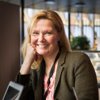
Precision medicine centre: “Extensive activity on several fronts”
Two years ago, the Karolinska Institutet and the Karolinska University Hospital announced that they would jointly launch the Precision Medicine Centre. Medtech Magazine called Anna Wedell, who is heading the work, to find out…
-

He saved lives with his theories – was ostracised and ended up in a mental hospital
Hungarian doctor Ignaz Semmelweis (1818-1865) undoubtedly possessed plenty of persistence, diligence and sound reasoning skills – but he was hardly blessed with luck and timing.
-

ALS – When the body has given up, but the brain persists
The nerve disease ALS gradually deprives the patient of control over the muscles and, eventually, also of speech. The eyes continue to function, though, and with the help of, among other things, a Swedish-developed invention, communication with the outside world can continue. “It’s their window to the world,” says ALS researcher Caroline Ingre.
-

New study: Post-Covid symptoms are common even after mild Covid-19
According to researchers at the University of Gothenburg, loss of smell and taste, shortness of breath and chest symptoms are the most common complaints after a mild Covid infection.
-

She creates pharmaceuticals on a 3D printer
The correct dosage for each individual, regardless of whether the pharmaceutical is for a seriously ill child or a frail elderly person, is the mission of a well-advanced project with 3D-printed drugs at Uppsala University. “It will soon be available in clinics”, says Christel Bergström, who is heading the project.
-

Bubblarna på innovationslistan
Långt mer än 20 viktiga innovationer som hjälper personer till bättre hälsa har svenska upphovspersoner. Här skriver vi om ett urval av dessa som alla har kommit det senaste halvseklet.